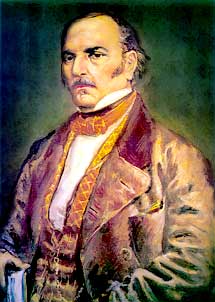Spiritism -- not to be confused with Spiritualism, a religion -- is a guide to the inner life and soul growth based primarily on two 19th century books, The Spirits' Book and The Book on Mediums. Although both are nominally by the Frenchman who took the name Allan Kardec (originally named Hippolyte Léon Denizard Rivail), they consist largely of transcriptions of questions, put by Kardec to spirits that he discerned to be of a high moral and spiritual character, and their answers.
This preface to The Spirits' Book by its translator, Anna Blackwell, is a decent introduction to the genesis of Spiritism. She writes:
... Allan Kardec was not a "medium," and was consequently obliged to avail himself of the medianimity of others in obtaining the spirit-communications from which they were evolved. The theory of life and duty, so immediately connected with his name and labors that it is often erroneously supposed to have been the product of his single mind or of the spirits in immediate connection with him, is therefore far less the expression of a personal or individual opinion than are any other of the spiritualistic theories hitherto propounded; for the basis of religious philosophy laid down in his works was not, in any way, the production of his own intelligence, but was as new to him as to any of his readers, having been progressively educed by him from the concurrent statements of a legion of spirits, through many thousands of mediums, unknown to each other, belonging to different countries, and to every variety of social position.I have been very impressed and inspired by the teachings of Spiritism, and recommend both books. Even though he was experimenting at a time when psychical research as a scientific discipline hardly existed, Kardec was very scientific in dealing with the phenomena of mediumship. By no means did he take the words of whatever spirits showed up at séances as gospel. He quickly rumbled what some Spiritualists like to ignore: that a lot of spirits are silly time wasters, who have fun playing with the gullibility of their audiences.
Spirits -- disembodied beings, including people who have died and passed on to the next realm, and inhabit other planes of existence, but can make themselves known in various ways in the physical world -- are of varying degrees of development, just as embodied humans are. (Probably the spirits most likely to "come through" mediums are the least evolved, being closest to the earth plane, and are correspondingly least likely to offer timeless wisdom.)
Nevertheless, during countless sittings with many different mediums, he encountered some whose sayings, as transmitted by mediums, had the ring of truth; very profound truth. Like Boswell recording as many as possible of Samuel Johnson's bons mots, Kardec set down the "best of" his questions and the spirits' answers, so to speak.
Allan Kardec
Spiritism had a large following in France in the 19th century; when Kardec passed from the physical world, he was buried in Père-Lachaise Cemetary, the resting place of the remains of many of the country's famous and celebrated. The influence of Spiritism faded in France and Europe, though notables such as Camille Flammarion (who was both a distinguished astronomer and a psychical researcher) and Dr. Eugène Osty continued in something of the same spirit (pun intended).
But Spiritism acquired a new lease on life in South America, particularly in Brazil. (That's why the program for the November gathering includes several Brazilian-based speakers.) It continues to thrive there, although there are a few study groups in the United States and elsewhere. But I believe it is unusual to find a symposium like the one in Washington (celebrating the 150th anniversary of the publication of The Spirits' Book) in this country. I'm planning to be there, and looking forward to it.



2 comments:
Interesting stuff. I see your link leads to one or two full online texts, as well.
Mr. Spog, good to hear from you again.
Yes, the second linked site includes a link to the complete texts. Reading a whole book online or printing it out is pretty tedious, but the site offers a way to sample the books' contents. No spiritual source is right for everyone, but I believe in trying things on for fit.
Post a Comment